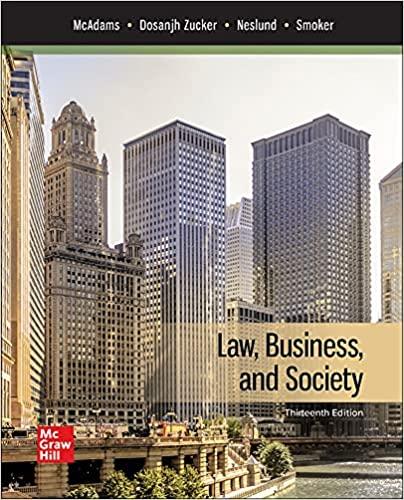Plaintiffs are a number of individually owned retail pharmacies. Plaintiffs allege that defendants, five manufacturers of brand
Question:
Plaintiffs are a number of individually owned retail pharmacies. Plaintiffs allege that defendants, five manufacturers of brand name prescription drugs (“BNPDs”), offered discounts and rebates to plaintiffs’ competitors but not to plaintiffs, and that this constitutes price discrimination in violation of the Robinson-Patman Act.
BACKGROUND
In 2007, Senior United States District Judge I. Leo Glasser granted defendants’ motion for summary judgment “. . . on the ground that plaintiffs have failed to show they are entitled to damages.” After Judge Glasser dismissed the claims of the designated parties, approximately 3,700 individual retail pharmacy plaintiffs remained. Confronted with Judge Glasser’s decision, these remaining plaintiffs devised a plan to gather evidence in discovery that might show “that specific plaintiff pharmacies lost sales of BNPDs manufactured by defendants to any specific favored purchaser.” Pursuant to this plan, which came to be known as the “matching process,” plaintiffs compiled lists of specific BNPD customers who no longer purchased drugs from them, and then searched the databases of non-party favored purchasers (and one favored purchaser who is a party) to see whether those same individuals were obtaining the same BNPDs from those favored purchasers.
Questions
1. Why did the retail pharmacies lose this case?
2. a. In your opinion, have small pharmacies and small businesses generally lost significant revenue over the years to retail giants such as Walmart and Costco? Explain.
b. If so, does that loss constitute an antitrust wrong that should be remedied by law? Explain.
3. In what sense does the Robinson Patman Act arguably reduce efficiency, thus harming consumer welfare?
4. Texaco sold gasoline at its retail prices to Hasbrouck, an independent Texaco retailer, but granted discounts to distributors Gull and Dompier. Gull and Dompier both delivered their gas directly to retailers and did not maintain substantial storage facilities. During the period in question, sales at the stations supplied by the two distributors grew dramatically, while Hasbrouck’s sales declined. Hasbrouck filed suit against Texaco, claiming that the distributor discount constituted a RobinsonPatman violation. Texaco defended, saying the discount reflected the services the distributors performed for Texaco, and that the arrangement did not harm competition. Decide. Explain. See Texaco v. Ricky Hasbrouck, 496 U.S. 543 (1990).
5. Utah Pie produced frozen pies in its Salt Lake City plant. Utah’s competitors, Carnation, Pet, and Continental, sometimes sold pies in Salt Lake City at prices beneath those charged in other markets. Indeed, Continental’s prices in Salt Lake City were beneath its direct costs plus overhead. Pet sold to Safeway using Safeway’s private label at a price lower than that at which the same pies were sold under the Pet label. Pet employed an industrial spy to infiltrate Utah Pie and gather information. Utah Pie claimed that Carnation, Pet, and Continental were in violation of Robinson-Patman. Decide. Explain. See Utah Pie Co. v. Continental Baking Co., 386 U.S. 685 (1967). For doubts about the continuing validity of the Utah Pie decision, see Coastal Fuels Inc. v. Caribbean Petroleum Corp., 79 F.3d 182 (1st Cir. P.R. 1996).
Step by Step Answer:

Law Business And Society
ISBN: 9781260247794
13th Edition
Authors: Tony McAdams, Kiren Dosanjh Zucker, Kristofer Neslund, Kari Smoker





